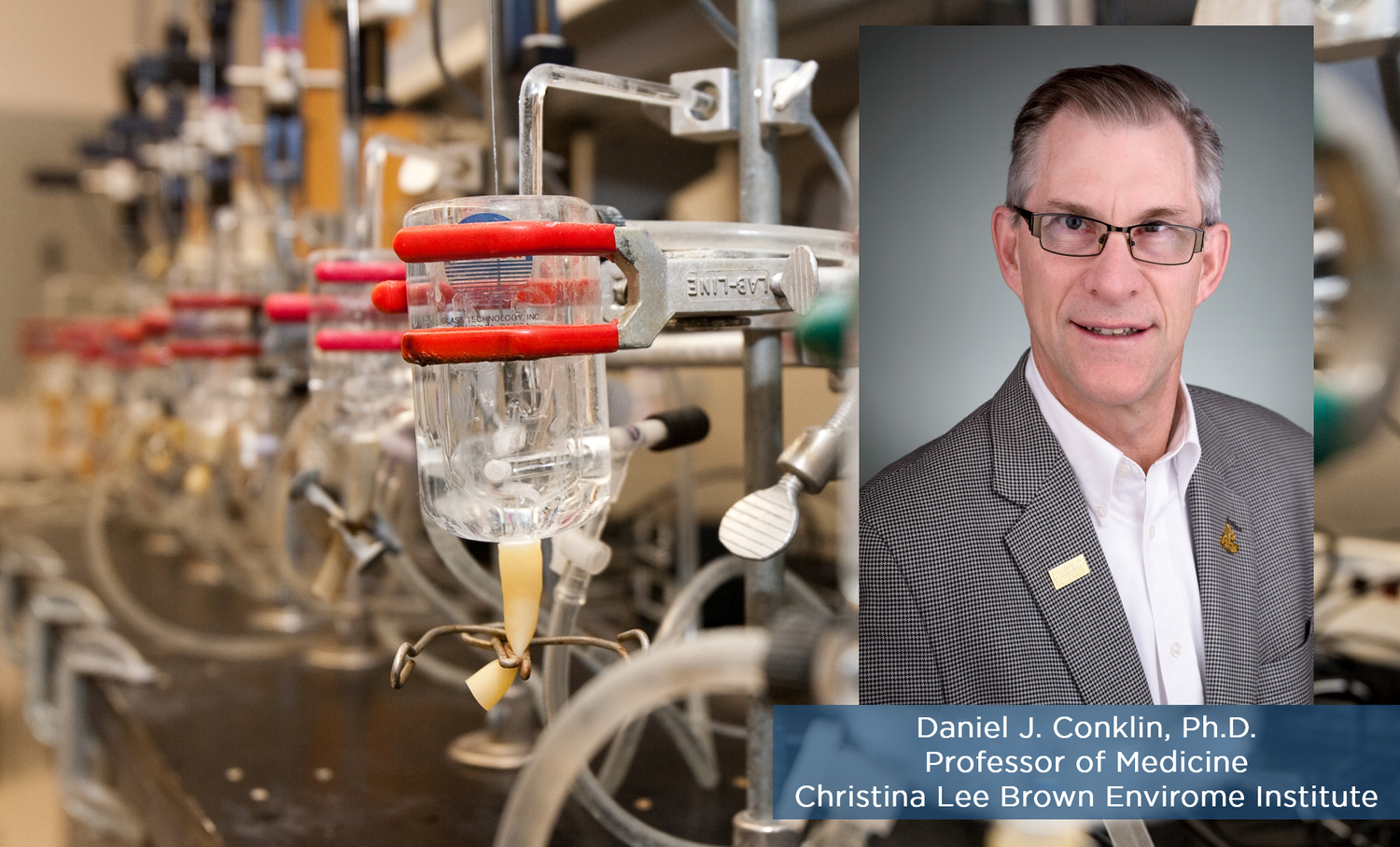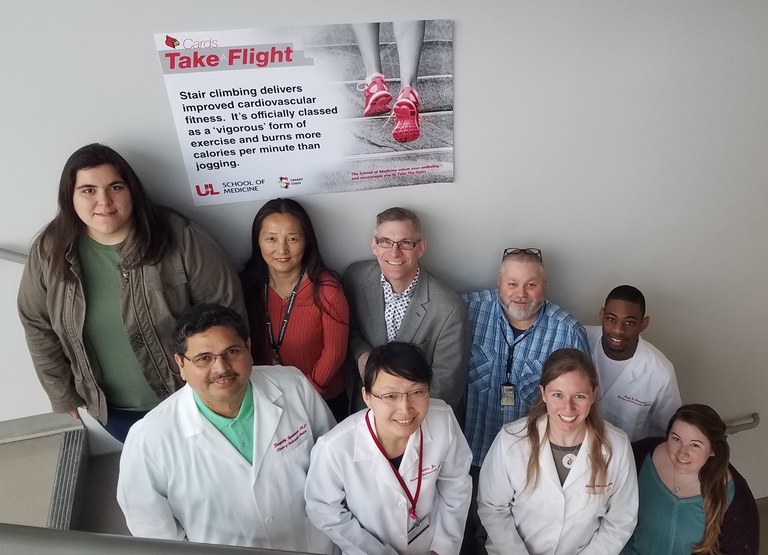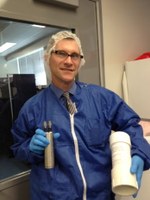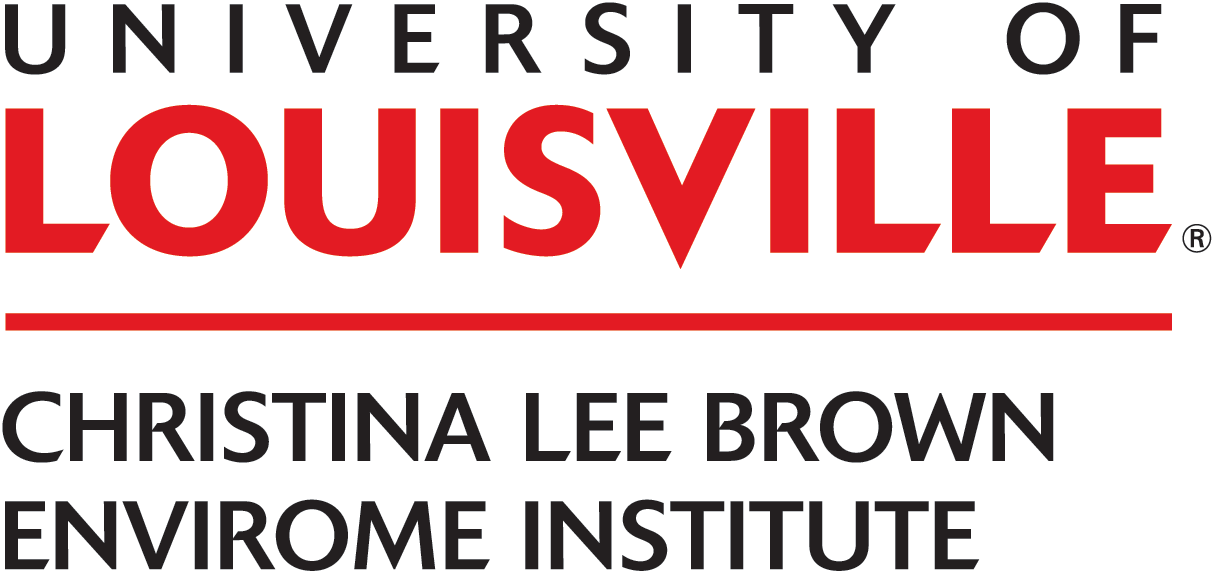Conklin Laboratory

Research
Keywords
Environmental cardiology, obesity, diabetes, tobacco, animal models of human disease, air pollution, cardiovascular toxicology, aldehyde metabolism.
Summary
Recent epidemiological studies reveal that cardiovascular disease and diabetes are antagonized by environmental pollutant exposure. The presence of aldehydes in complex air borne mixtures of particulate matter and gases (e.g., smog, tobacco smoke, automobile exhaust, etc) is well-documented but the contribution these aldehydes make to the cause of or exacerbation of cardiovascular diseases and diabetes is unknown. Additional sources of environmental aldehydes include foods and beverages. Moreover, environmental aldehydes can promote the formation of endogenous aldehydes via oxidative stress and lipid peroxidation, as well as by stimulating inflammatory processes. Aldehydes such as the toxic acrolein, can be formed from the metabolism of exogenous and endogenous compounds, such as allylamine, cyclophosphamide, and polyamines, within cardiovascular and systemic tissues to induce injury. We have focused on acrolein action in cardiovascular tissues over the past 10 years, and our studies show that acrolein is a powerful cardiovascular toxin that can induce dyslipidemia, injure the heart and blood vessels, and enhance thrombus formation (blood clotting). Future studies will focus on uncovering the mechanisms by which aldehydes such as acrolein promote cardiovascular toxicity to better understand how to intervene and to promote regulatory guidelines that protect public health.
Because metabolism of aldehydes, such as acrolein, is a likely an important determinant of acrolein tissue level, activity and detoxification, we have probed the role of aldehyde metabolizing enzymes as a way to understand the nature of aldehyde-induced cardiovascular toxicity. Recent studies demonstrate that tissue deficiency of the acrolein-metabolizing enzyme, glutathione-S-transferase (GST) P (Pi), affects the sensitivity of the cardiovascular tissues and extra-cardiac structures, including urinary bladder and liver. These data could help explain how GST polymorphisms, which are present in human populations, increase the relative risk for cardiovascular disease and diabetes in those individuals exposed to high levels of air pollution. Collectively, human epidemiological studies and our experimental models serve as notice of the potentially dramatic cardiovascular responses elicited by aldehyde exposure, especially in tissues with altered levels of aldehyde metabolizing enzymes, such as GSTs. Subsequent studies will focus on how GST deficiency increases cardiovascular sensitivity to air pollution and aldehydes.
Related Research Centers
Diabetes and Obesity Center - Animal Models and Phenotyping
ATRAC2.0 - Tobacco Addiction Center
Lab Members
 |
|---|
Front Row: Ganapathy Jagatheesan, Ph.D.; Lexiao (Monica) Jin (Ph.D. student); Jordan Finch (Ph.D. student); Lexi Hand (Res. Tech II). Back Row: Whitney Theis, M.S.; Luping Guo, M.D.; Dan Conklin, Ph.D.; Gregg Shirk, Technical Manager; Andre Richardson (Ph.D. student). Not Pictured: Don Mosley; Fenge Li; David Young. |
Animal Core Services
Click Here for information about service costs.
Positions and Education
Biography
In 2003 Dr. Conklin joined the University of Louisville to conduct Environmental Cardiology research with Drs. Aruni Bhatnagar, Ph.D. and Sanjay Srivastava, Ph.D. He currently is supported by the NIH in the Diabetes and Obesity Center (COBRE DOC), an EPA-funded Superfund Research Center, and an FDA-funded Tobacco Center of Regulatory Science with the American Heart Association's Tobacco Regulation Center (ATRAC 2.0) where he is director of the Animal Phenotyping Core and UofL Inhalation Facility.
Dr. Conklin is an author/co-author of over 100 publications including peer-reviewed articles, book chapters and invited reviews. He is a regular grant reviewer of the NIH and the Tobacco Related Disease Research Program (TRDRP), and has been a chair/co-chair of the American Heart Association Great Rivers Affiliate Vascular Biology study section. He is an Associate Editor of Toxicology and Applied Pharmacology since 2007, and an Editorial Board member of Circulation Research since 2015.
Dr. Conklin is a member of the American Heart Association (AHA), American Physiological Society (APS), and the Society of Toxicology (SOT). In the SOT, he is Past-President of the Ohio Valley (OVSOT) SOT Regional Chapter, a Past-President of the Cardiovascular Toxicology Specialty Section (CVTSS), and a current member of the Stem Cell (SCSS), CVTSS, and the Inhalation and Respiratory Specialty Sections (IRSS; former Councilor).
Press & Events
2021
- "E-cigarettes, Aldehydes and Endothelial Dysfunction"; AJP - Heart and Circulatory Physiology Podcast, March 16th, 2021
2020
- "How the Environment Impacts Diabetes" on Your Diabetes Breakthrough Podcast, September 14, 2020
2019
- "Vaping Could Cause Cardiovascular Harm, Researcher Says" on WBUR's Here and Now, June 18, 2019
- "Exploring the Link Between Cardiovascular Disease and Electronic Cigarettes" on Spectrum News 1
2018
- E-Cigarette Interview on the "UofL Today with Mark Hebert" Radio Show
- "UofL research: Flavors in e-cigarettes could cause adverse health effects" interview with UofL News
2017
- "Fresh concerns raised about dangers of e-cigarettes: Study reveals the trendy gadgets may slow down your heart rate and cause a cardiac arrest" on the Daily Mail
- "E-cigarette vapor slows heart rate in mice" on EurekAlert!
2016
- "E-cigarettes may harm unborn babies, immune system, say scientists" on the DW
- FDA to oversee all tobacco products, including e-cigarettes, WDRB Interview, Louisville, KY
- "What Do We Really Know About The Health Effects Of E-Cigs" on “Dr. Greg Davis on Medicine” Radio Show, WUKY University of Kentucky Public Radio
- E-Cigarette Interview on the “UofL Today with Mark Hebert” Radio Show
- "Vaping is Far From Harmless" interview for KET/NOVA
- "UofL researcher: Evidence mounting on harm of e-cigarettes" interview with Insider Louisville
Positions
Director, Animal Models and Phenotyping Core, Diabetes and Obesity Center, School of Medicine, University of Louisville
Director, Inhalation Facility, School of Medicine, University of Louisville
Professor of Medicine, Division of Cardiovascular Environmental Medicine, Christina Lee Brown Envirome Institute, School of Medicine, Christina Lee Brown Envirome Institute, University of Louisville
Assistant and Associate Professor, 1998-2003, Dr. Conklin was Department of Biological Sciences, University of Wisconsin-Eau Claire
Education
NIEHS Postdoctoral Fellow 1996-1998, University of Texas Medical Branch, Dept. of Pathology, Cardiovascular Toxicology.
Ph.D. 1995, University of Notre Dame, Cardiovascular Physiology.
Selected Publications | |
|---|---|
Heart slice culture system reliably demonstrates clinical drug-related cardiotoxicity Miller JM, Meki MH, Ou Q, George SA, Gams A, Abouleisa RRE, Tang X, Ahern BM, Giridharan GA, El-Baz A, Hill BG, Satin K, Conklin DJ, Moslehi J, Bolli R, Ribeiro AJS, Efimov IR, Mohamed TMA. Toxicol Appl Pharmacol. 2020 Aug 30;406:115213. doi: 10.1016/j.taap.2020.115213. Online ahead of print. | Tobacco Smoke and Endothelial Dysfunction: Role of Aldehydes? Lynch J, Jin L, Richardson A, Conklin DJ. Curr Hypertens Rep. 2020 Aug 28;22(9):73. doi: 10.1007/s11906-020-01085-7. |
Conklin DJ, Schick S, Blaha MJ, Carll A, DeFilippis A, Ganz P, Hall ME, Hamburg N, O'Toole T, Reynolds L, Srivastava S, Bhatnagar A. Am J Physiol Heart Circ Physiol. 2019 Apr 1;316(4):H801-H827. doi: 10.1152/ajpheart.00591.2018. Epub 2019 Feb 1 | Systemic Toxicity of Smokeless Tobacco Products in Mice. Malovichko MV, Zeller I, Krivokhizhina TV1, Xie Z, Lorkiewicz P, Agarwal A, Wickramasinghe N, Sithu SD, Shah J, O'Toole T, Rai SN, Bhatnagar A, Conklin DJ, Srivastava S. Nicotine Tob Res. 2019 Jan 1;21(1):101-110. doi: 10.1093/ntr/ntx230. |
Association Between Residential Greenness and Cardiovascular Disease Risk. Yeager R, Riggs DW, DeJarnett N, Tollerud DJ, Wilson J, Conklin DJ, O'Toole TE, McCracken J, Lorkiewicz P, Xie Z, Zafar N, Krishnasamy SS, Srivastava S, Finch J, Keith RJ, DeFilippis A, Rai SN, Liu G, Bhatnagar A. J Am Heart Assoc. 2018 Dec 18;7(24):e009117. doi: 10.1161/JAHA.118.009117. | Flavorings in Tobacco Products Induce Endothelial Cell Dysfunction. Fetterman JL, Weisbrod RM, Feng B, Bastin R, Tuttle ST, Holbrook M, Baker G, Robertson RM, Conklin DJ, Bhatnagar A, Hamburg NM. Arterioscler Thromb Vasc Biol. 2018 Jul;38(7):1607-1615. doi: 10.1161/ATVBAHA.118.311156. Epub 2018 Jun 14. |
Lorkiewicz P, Riggs DW, Keith RJ, Conklin DJ1, Xie Z, Sutaria S, Lynch B, Srivastava S, Bhatnagar A. Nicotine Tob Res. 2018 Jun 2. doi: 10.1093/ntr/nty089. | Haberzettl P1, Conklin DJ1, Abplanalp WT1, Bhatnagar A1, O'Toole TE2. Arterioscler Thromb Vasc Biol. 2018 Jan;38(1):131-142. doi: 10.1161/ATVBAHA.117.309971. Epub 2017 Nov 30. |
A Simple Method for Normalization of Aortic Contractility. Jin L, Lipinski A, Conklin DJ J Vasc Res. 2018;55(3):177-186. doi: 10.1159/000490245. Epub 2018 Jul 5. | Benzene exposure is associated with cardiovascular disease risk. Abplanalp W, DeJarnett N, Riggs DW, Conklin DJ, McCracken JP, Srivastava S, Xie Z, Rai S, Bhatnagar A, O'Toole TE PLoS One. 2017 Sep 8;12(9):e0183602. doi: 10.1371/journal.pone.0183602. eCollection 2017. |
A novel method of nicotine quantification in electronic cigarette liquids and aerosols. Ogunwale MA, Chen Y, Theis WS, Nantz MH, Conklin DJ, Fu XA Anal Methods. 2017 Aug 7;9(29):4261-4266. doi: 10.1039/C7AY00501F. Epub 2017 Jun 19. | Conklin DJ, Malovichko MV, Zeller I, Das TP, Krivokhizhina TV, Lynch BH, Lorkiewicz P, Agarwal A, Wickramasinghe N, Haberzettl P, Sithu SD, Shah J, O'Toole TE, Rai SN, Bhatnagar A, Srivastava S. Toxicol Sci. 2017 Aug 1;158(2):263-274. doi: 10.1093/toxsci/kfx095. |
Role of TRPA1 in acute cardiopulmonary toxicity of inhaled acrolein. Conklin DJ, Haberzettl P, Jagatheesan G, Kong M, Hoyle GW. Toxicol Appl Pharmacol. 2017 Jun 1;324:61-72. doi: 10.1016/j.taap.2016.08.028. Epub 2016 Aug 31. | Intermittent hypoxia-induced cardiomyopathy and its prevention by Nrf2 and metallothionein. Zhou S, Yin X, Jin J, Tan Y, Conklin DJ, Xin Y, Zhang Z, Sun W, Cui T, Cai J, Zheng Y, Cai L. Free Radic Biol Med. 2017 Nov;112:224-239. doi: 10.1016/j.freeradbiomed.2017.07.031. Epub 2017 Aug 2. |
Aldehyde Detection in Electronic Cigarette Aerosols. Ogunwale MA, Li M, Ramakrishnam Raju MV, Chen Y, Nantz MH, Conklin DJ, Fu XA. ACS Omega. 2017 Mar 31;2(3):1207-1214. doi: 10.1021/acsomega.6b00489. Epub 2017 Mar 29. | Pope CA 3rd, Bhatnagar A, McCracken JP, Abplanalp W, Conklin DJ, O'Toole T. Circ Res. 2016 Nov 11;119(11):1204-1214. doi: 10.1161/CIRCRESAHA.116.309279. Epub 2016 Oct 25. |
Air Pollution-Induced Vascular Dysfunction: Potential Role of Endothelin-1 (ET-1) System. Finch J, Conklin DJ. Cardiovasc Toxicol. 2016 Jul;16(3):260-75. doi: 10.1007/s12012-015-9334-y. | Acute cardiopulmonary toxicity of inhaled aldehydes: role of TRPA1. Conklin, DJ Ann N Y Acad Sci. 2016 Jun;1374(1):59-67. doi: 10.1111/nyas.13055. Epub 2016 May 6. |
DeJarnett N, Yeager R, Conklin DJ, Lee J, O'Toole TE, McCracken J, Abplanalp W, Srivastava S, Riggs DW, Hamzeh I, Wagner S, Chugh A, DeFilippis A, Ciszewski T, Wyatt B, Becher C, Higdon D, Ramos KS, Tollerud DJ, Myers JA, Rai SN, Shah J, Zafar N, Krishnasamy SS, Prabhu SD, Bhatnagar A. Arterioscler Thromb Vasc Biol. 2015 Nov;35(11):2468-77. doi: 10.1161/ATVBAHA.115.305724. Epub 2015 Aug 20. | Acrolein exposure is associated with increased cardiovascular disease risk. DeJarnett N, Conklin DJ, Riggs DW, Myers JA, O'Toole TE, Hamzeh I, Wagner S, Chugh A, Ramos KS, Srivastava S, Higdon D, Tollerud DJ, DeFilippis A, Becher C, Wyatt B, McCracken J, Abplanalp W, Rai SN, Ciszewski T, Xie Z, Yeager R, Prabhu SD, Bhatnagar A. J Am Heart Assoc. 2014 Aug 6;3(4). pii: e000934. doi: 10.1161/JAHA.114.000934. |
Contact | ||
|---|---|---|
 | Daniel J. Conklin, Ph.D. Professor of Medicine Christina Lee Brown Envirome Institute School of Medicine, University of Louisville | |
 | Ph: 502-852-5836 Mailing Address: 404E, Baxter II 580 South Preston Street Louisville, KY 40202 |
